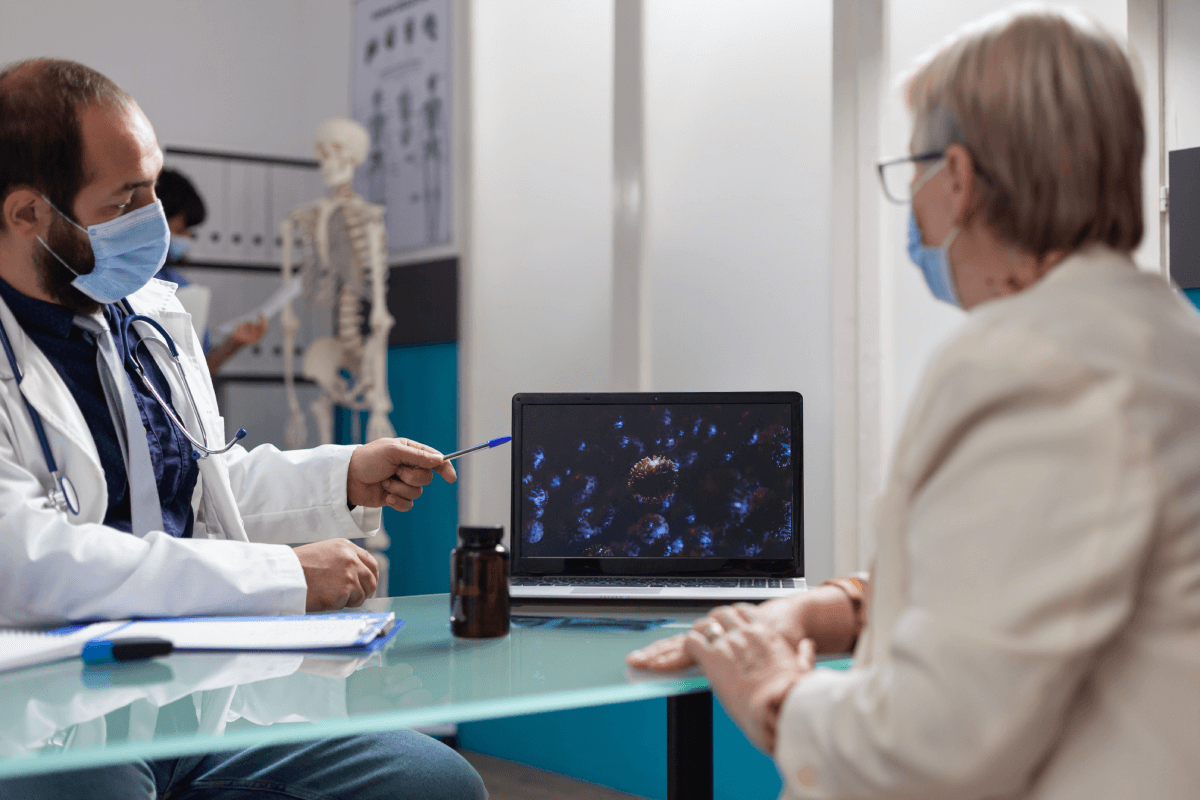
HealthTech Innovations for the Aging Population

March 14, 2024
As the world’s population ages, the demand for specialized healthcare services is increasing. By 2050, it’s estimated that nearly 22% of the world’s population will be over 60 years old. This demographic shift brings unique challenges, including a higher prevalence of chronic diseases, mobility issues, and the need for continuous health monitoring.
Confronting these challenges requires more than traditional healthcare approaches; it demands innovation and adaptation. The rise of HealthTech innovations, including remote patient monitoring, wearable devices, and smart health systems, are not just transforming the way we provide care to the elderly; they are redefining the very experience of aging. Integrating these technologies into everyday healthcare can significantly shift elder care. This shift is about managing illness and enhancing the quality of life for the aging population. Integrating HealthTech devices in elder care allows older individuals to live independently, with dignity, and with a sense of security that their health is continuously monitored and managed.
Health Challenges Faced by the Aging Population
As individuals age, their healthcare needs become more complex. The aging process brings with it a range of healthcare needs. Chronic diseases such as heart disease and diabetes are prevalent among seniors, affecting about 80% of older adults. Mobility loss, another critical issue, increases the risk of falls and injuries. Additionally, cognitive conditions like Alzheimer’s disease impact memory and daily functioning, while sensory impairments like hearing and vision loss lead to communication difficulties and social isolation. Mental health concerns, often underdiagnosed in this demographic, further complicate the overall well-being of the elderly.
Addressing these health concerns requires a holistic approach, integrating medical, familial, and community support to ensure comprehensive care and improved quality of life for the aging population. HealthTech can play a significant role in this regard. It offers inventive solutions tailored to the unique healthcare needs of the elderly, blending technology with care to enhance longevity for those in their later years.
HealthTech Innovations to Support the Aging Population
Recent technological advancements have significantly impacted the healthcare sector, with developments in telemedicine, remote patient monitoring, and wearable devices playing pivotal roles. Following are some HealthTech tools that are contributing to improving longevity for seniors across the world:
Remote Patient Monitoring (RPM): Remote Patient Monitoring systems like PatientOne’s OpenRPM allow continuous health monitoring and are especially useful for chronic disease management. This technology enables healthcare providers to track and manage patients’ health conditions remotely, facilitating early detection and timely intervention.
Wearable Devices: The advancement of wearable technology has significantly impacted elder care. These devices, ranging from smartwatches to sensor-laden garments, monitor vital health metrics and have features like fall detection. They play a crucial role in emergency response, ensuring the safety and well-being of seniors.
Smart Health Systems: Smart home technologies have made significant strides in enhancing the living environments of the elderly. Equipped with sensors, voice activation, and emergency alert systems, they assist in daily living, improve safety, and encourage social engagement, essential for mental health.
Telehealth and Virtual Consultations: Telehealth has revolutionized access to healthcare for the elderly. It offers a convenient solution for those with mobility issues or difficulty accessing traditional healthcare settings. Virtual consultations and telemedicine provide timely access to medical advice and care, reducing the physical and logistical challenges in healthcare access.
AI-Driven Health Tools: Recent breakthroughs in Artificial Intelligence (AI) have resulted in the introduction of various groundbreaking tools in elder care. AI algorithms can analyze health data, predict health risks, and offer personalized care plans. AI tools can also improve the mental health of the aging population. An example is AI-powered chatbots and virtual health assistants, which provide cognitive stimulation and companionship, aiding mental health and cognitive function. These AI tools are becoming increasingly important in managing seniors’ complex health needs, offering new and adaptable solutions.
By integrating these HealthTech innovations, elder care is evolving into a more supportive and comprehensive system. The future of elder care, powered by these technologies, promises a landscape where aging is associated with independence and fulfillment, as well as enhanced healthcare outcomes.
Challenges and Considerations in Implementing HealthTech
While HealthTech tools and devices offer transformative solutions for elder care, their implementation comes with challenges and considerations that need careful attention.
One of the primary challenges is ensuring user accessibility and friendliness of these technologies. The elderly often have varying degrees of comfort and familiarity with new technologies. Therefore, these HealthTech tools must be designed with simplicity and ease of use in mind. The interface should be intuitive, with clear instructions and support to assist the elderly in navigating these systems.
Another significant consideration is the cost and affordability of these technologies. High-tech solutions can be expensive, potentially putting them out of reach for many seniors and their families. Ensuring these innovations are cost-effective and accessible to a broad range of users is essential for widespread adoption and effectiveness.